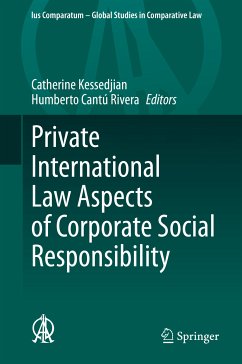This collection comprises 20 national reports from jurisdictions in Europe, North America, Latin America and Asia, addressing the private international law aspects of corporate social responsibility. They provide an overview of the legal differences between geographical areas, and offer numerous examples of how states and their courts have resolved disputes involving private international law elements. The book draws two preliminary conclusions: that there is a need for a better understanding of the role that private international law plays in cases involving transnational elements, in order to better design transnational solutions to the issues posed by economic globalisation; and that the treaty negotiations on business and human rights in the United Nations could offer a forum to clarify and unify several of the elements that underpin transnational disputes involving corporate human rights abuses, which could also help to identify and bridge the existing gaps that limit effective access to remedy. Adopting a comparative approach, this book appeals to academics, lawyers, judges and legislators concerned with the issue of access to remedy and reparation for corporate abuses under the prism of private international law.
Dieser Download kann aus rechtlichen Gründen nur mit Rechnungsadresse in A, B, BG, CY, CZ, D, DK, EW, E, FIN, F, GR, HR, H, IRL, I, LT, L, LR, M, NL, PL, P, R, S, SLO, SK ausgeliefert werden.


